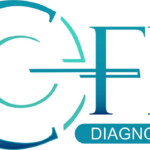Knee osteoarthritis (OA) is a common musculoskeletal disorder in the U.S. with an incident rate ranging from 14 to 30 million. Overall annual arthritis-related medical expenditures are nearly $140 million, and hip and knee OA together are the 11th highest contributor to global disability. When diagnosed at early stages, lifestyle interventions such as exercise and weight loss can slow OA progression, but at later stages, only total knee replacement (TKR), an invasive option and elective procedure, is available.
In the U.S., estimates of TKR incidence lie at 400,000 each year, a figure expected to grow 143 percent by 2050. TKR is one of the most effective procedures in orthopedic surgery, but electing for it is not straightforward, nor is it a perfect procedure. Only 66 percent of patients report feeling “normal” and 33 percent report some degree of pain post implant. As such, the best option is to prolong the health of the knee. This creates a need to identify patients at higher risk of TKR so that appropriate treatments can be pursued.
Deep learning, especially convolutional neural networks (CNNs), has made strides in image classification tasks. The UCSF Center for Intelligent Imaging (ci2) was founded as a hub for the multidisciplinary development of AI in imaging to meet unmet clinical needs and provide a platform to measure impact and outcomes of this technology. Recently, Aniket Topaldi (PhD student at UCSF/UC Berkeley) mentored by Valentina Pedoia, PhD and Sharmila Majumdar, PhD, faculty in the UC San Francisco Department of Radiology and Biomedical Imaging, along with Jinhee Lee, MA, an assistant researcher, set out to formulate a deep-learning based pipeline that incorporates knee joint images in addition to clinical and demographic information to predict the onset of TKR. The study was recently published in Scientific Reports (Nature). Data was acquired from the public private partnership with NIH – Osteoarthritis Initiative (OAI).
This study presents a sensitive and specific pipeline using MR images, that predicts TKR in subjects, especially for those who had no x-ray based signs of OA. Predicting the risk of future total knee replacements with no evidence of OA, at the very early stages, would mean steps maybe taken to reduce the risk by altering lifestyle factors, such as weight-loss, or return-to-play times for athletes. This paper and results are novel in the three ways. First, the model is the first to apply a 3-dimensional DenseNet CNN for the prediction of TKR from MR images. Second, the TKR prediction model is evaluated for patients stratified by x-ray based OA severity, which enables us to determine its performance even in individuals who would not have ordinarily been considered at risk, i.e. those with no signs of OA. Third, with the aim of improving model interpretability and clinical utility, the figure below shows the first comprehensive, case-control study to identify specific locations in the MR images that are used for predicting the risk of TKR, these are imaging biomarkers for TKR, and defy the notion that CNN based methodologies are “black-boxes,” with no anatomical determinants.
This study is a great example of the use of deep learning methods for new discovery. By unlocking the complex information hidden in 3-dimensional MR images we are able to correlate the imaging data with clinical factors.




